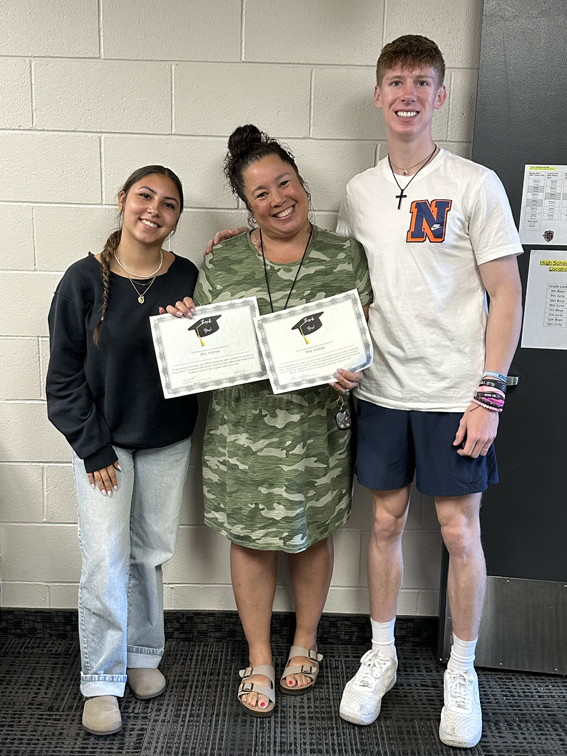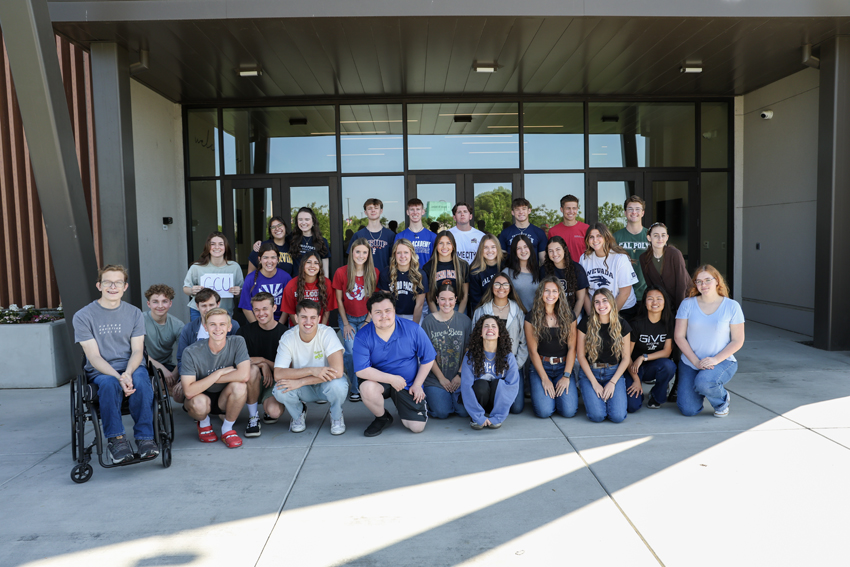“Teachers used four words to describe kids like me: dumb, stupid, lazy and slow,” Rev. Jamie S. Evans told the audience at the Learning Resource Center’s (LRC) parents’ night, Oct. 28.
Evans suffers from dyslexia and attention deficit hyperactive disorder (ADHD). Compared to his older brothers, who he says were both better students and one became a doctor, Evans felt inadequate.
According to LD OnLine, learning disabilities (LD) like those Evans battled with affect about 15% of the population.
Campus educators formed the LRC to serve as a hub for assistance and instruction for students who struggle with traditional education and require alternative strategies to learn. Each semester the staff organizes a parents’ night for families of students in the LRC and invites a guest speaker to the event.
“We organize these parents’ nights so that parents can have an opportunity to share concerns with other parents and students with the same struggles, and also to learn from guest speakers,” Lori Grossman, LRC director, said. “We bring guest speakers that will motivate, encourage and inform students on how to be better learners.”
Grossman asked Evans, the senior pastor of First Presbyterian Church, to share his story of struggles with dyslexia and ADHD. Both LDs presented obstacles for Evans throughout his education.
“When I entered into school, I had to sit, listen and learn in a classroom,” Evans said. “But I wanted to move, talk and learn. I read pages three times and forgot everything I read instantly. I had to learn how to use my inherent energy to stimulate creativity and learning.”
During his elementary years, educators knew little about learning disabilities, he said. His second grade teacher did not recognize reversals in spelling as a symptom of dyslexia. Because of the school system’s limited knowledge, Evans attended five different public schools within five years before he settled into a private school.
“When I was diagnosed, I was told two things: ‘It’s not your fault, but it is your responsibility,'” Evans said. “Failure was not an option. If I failed a course, I came back and did it again. To me, LD is not a learning disability, but a learning difference.”
Self-medication accelerates educational focus
Similar to many students with an LD, Evans devised a method to compensate for his attention deficit, he said. He followed a study system with workouts at regular intervals to exhaust excess energy, allowing him to focus on schoolwork.
“Everybody I know with a moderate to severe LD self-medicates one way or another, whether it’s overwork, hyperactive exercise or alcohol,” Evans said. “Sooner or later everyone finds an outlet.”
Although many diagnosed with ADHD rely on prescription drugs like Ritalin (methylphenidate) to allay their symptoms, Evans prefers his “exercise elixir.” He believes drugs carry undesirable side effects and serve as temporary solutions.
“If I take Ritalin, I can listen and sit quietly, but the awe and wonder of life goes away,” Evans said. “Ritalin doesn’t fix the problem; it buys you space to fix the problem.”
In addition to developing a routine to combat his ADHD, Evans discovered a process that enabled him to complete assignments throughout high school and college.
With his method, which he dubbed “delay of gratification,” Evans tackled the most difficult tasks first at optimum vibrancy and shelved the rewards.
“Every teacher has a way of teaching, and every student has a way of learning,” Evans said. “We’re trained to do the hardest subject first when we are best rested. It’s a sign of high intelligence to do things this way, and it’s also a sign of low intelligence when people do the easiest things first.”
LD symptoms transcend classroom walls
While his learning disabilities hindered his education, they also affected his social development. According to Evans, LD students usually fall three years behind their peers’ public skills. After recognizing this condition, Evans observed outgoing classmates in order to echo their responses to social gestures and signals.
“Many LD people don’t know how to converse with subtle social cues,” Evans said. “I started watching others who were successful to see what questions they asked and what notes they took. I watched others who were socially connected to see what they were doing.”
Around the time of his diagnosis, doctors and supporters claimed Evans would grow out of his disabilities at age 18, he said. Although he believes they have lessened over the years, Evans resolved to cope with his conditions.
“They’ve remediated [sic], but they’re nowhere near gone,” Evans said. “You don’t grow out of it, you adapt. It was always the monster I had to fight.”
However, knowledge of the effects and symptoms of learning disorders has surged since the years of his education, Evans said. He believes LD students are better equipped now than he was due to today’s educational climate.
“Through brain studies, doctors are getting a better understanding of what shorts out in the brains of LD people,” Evans said. “LD students are in much better shape today because of remediation studies and teachers in programs like Discovery.”
Discovery program bridges brain gaps
The LRC employs an educational therapy curriculum from Discovery Program, Inc., a subsidiary of the National Institute for Learning Development, to assist learning-disabled students.
The Discovery curriculum incorporates brain exercises and introduces learning strategies in order to improve visual and auditory processing, according to Paulette Bradford, an educational therapist at the LRC.
“I tell the kids: when you work out, you make your muscles buff. But when you do brain exercises, you make your brain buff,” Bradford said.
Along with other members of the LRC staff, Bradford attended the parents’ night during which Evans shared his story. Although it focused on learning disabilities, Bradford believes his speech related to all students.
“He talked about the whole LD person, not just academically, but emotionally and spiritually,” Bradford said. “His message is not just for LD people, but for anyone who goes through a struggle. I’d like him to come speak at a junior high and high school chapel.”
In 1983, Evans penned An Uncommon Gift, an autobiographical account of his learning disabilities. Grossman asks each LRC educational therapist to read his book when they join the staff. Although no longer in print, the Media Center library owns two copies of An Uncommon Gift.
For more information on the LRC and its Discovery program, visit the March 2008 article, Quirks manifest multiple intelligence, the May 2002 article, Discovery Program granted 7-year accreditation or the December 2002 article, Noted author promotes LRC, parenting techniques.






